Billionaire Temu founder's reign as China's richest person is over just weeks after it began

Colin Huang, founder of e-commerce giant Pinduoduo, just lost his place as China's richest person.
Pinduoduo's parent company, PDD Holdings, also owns Temu, which has exploded in popularity.
Huang's worth tumbled after Pinduoduo's shares fell 29% on Monday.
Colin Huang's reign as China's richest person is over just weeks after it began.
Huang, aged 44, became China's richest person on Aug. 8. He's the founder and former CEO of Pinduoduo, a gamified online marketplace connecting buyers and sellers that's popular in China. Pinduoduo is also the company behind Temu, the discount shopping website that has taken off in the U.S. over the past two years.
But Pinduoduo's shares fell 29% in the US on Monday after the company reported lower-than-expected revenue and indicated that sales growth will slow down.
That cut Huang's net worth to $35.2 billion, $14.1 billion lower than it was previously, Bloomberg reported. Huang is now the fourth-richest person in China and 45th wealthiest person in the world, according to the news outlet's billionaires index.
Pinduoduo had a market cap of more than $190 billion when Huang became the richest person in China, giving it a higher valuation than Uber or Sony.
People buy items on Pinduoduo such as iPhones at sale price while playing games, and rope in friends to "group-buy" groceries at huge discounts. Pinduoduo takes a small commission and charges sellers to promote their products on its app, but doesn't hold any stock.
Huang founded the company in 2015. It's grown rapidly ever since, and listed in New York in July 2018.
In September 2022, Pinduoduo launched its cut-price shopping app Temu in the US. It quickly stormed its way up the download charts.
Here's how Huang went from a math Olympiad to a Google software engineer to a serial entrepreneur and e-commerce billionaire.
Huang came from humble beginnings, and a math Olympiad changed his life
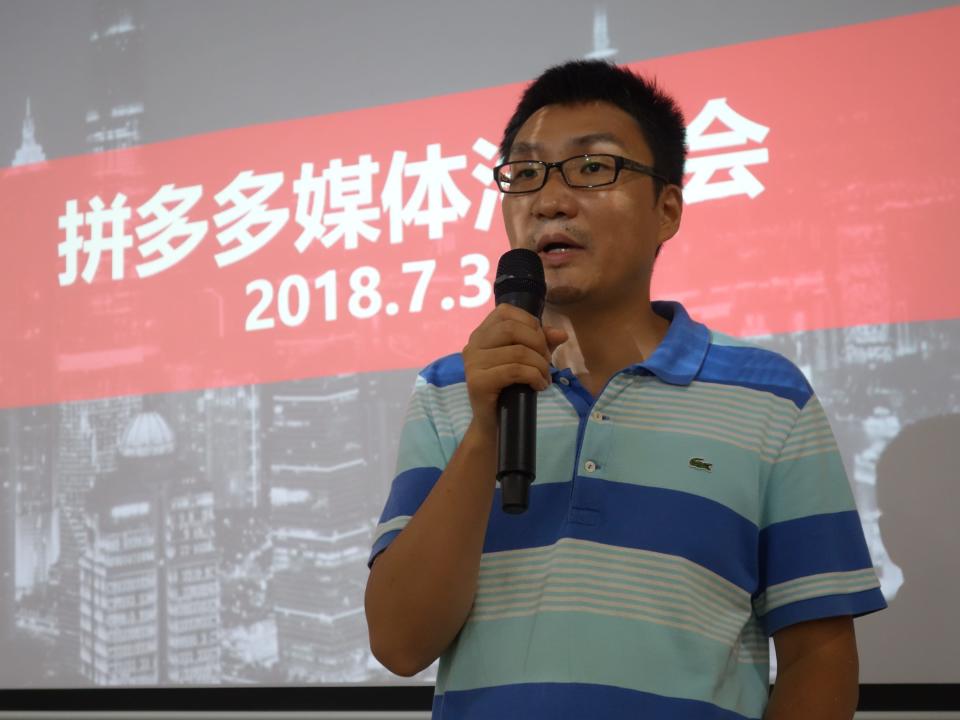
Huang was born in 1980 to factory worker parents on the outskirts of Hangzhou, a city in China's eastern province of Zhejiang. It's also where Jack Ma's e-commerce giant Alibaba is based.
Huang detailed some aspects of his life in a now-suspended Medium blog.
In one post, he wrote that he went to an "ordinary" elementary school, but after he won a prize in a math Olympiad his teacher asked him to take an admission test for the highly selective Hangzhou Foreign Language School (HFLS).
He gained a place, but initially didn't want to go as he thought the school focused on foreign languages. "I wanted to go to a school strong in Math, Physics and Chemistry," Huang wrote.
"Later our principal called me over and convinced me to go. In retrospect, [thank] goodness that I chose to go to HFLS," he continued.
The school was renowned for its liberal approach. "We were exposed to the Western culture and influence much earlier, deeper, and to a greater extent. A lot of us are more liberal than our peers in other schools," Huang wrote.
In the late 1990s, Huang was one of relatively few young Chinese people with internet access and international friends
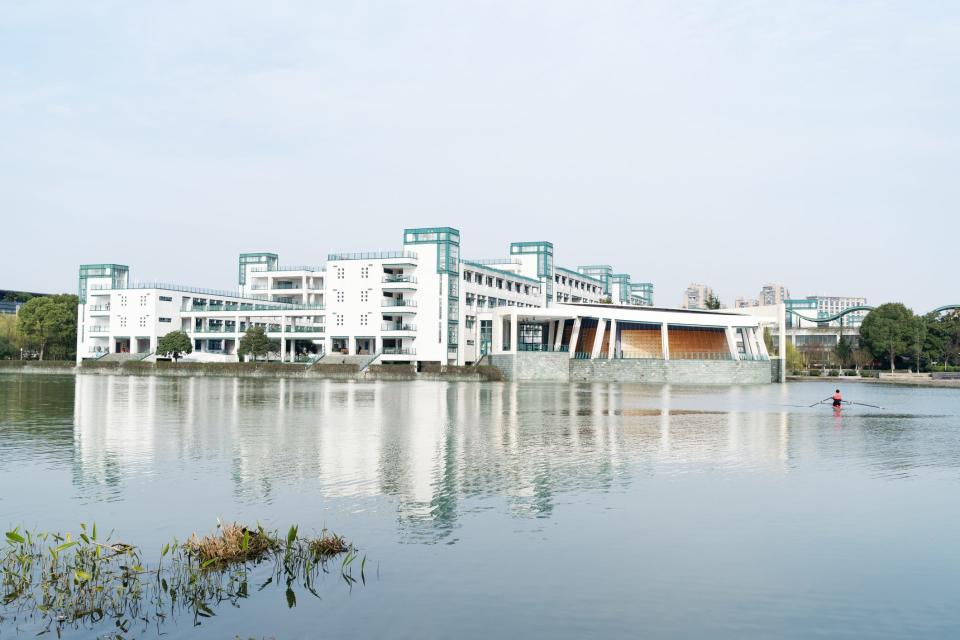
At 18, Huang started studying computer science at the prestigious Zhejiang University. In his freshman year, he was selected as a fellow at the Melton Foundation, established by VeriFone founder Bill Melton.
The foundation selected young students from emerging regions around the globe. Each fellow was given a computer and internet data so they could browse the web and message other fellows. They could also travel to a member country each year. Huang credits this experience for giving him a more international mindset than most people in China.
But Huang has one big regret about his youth
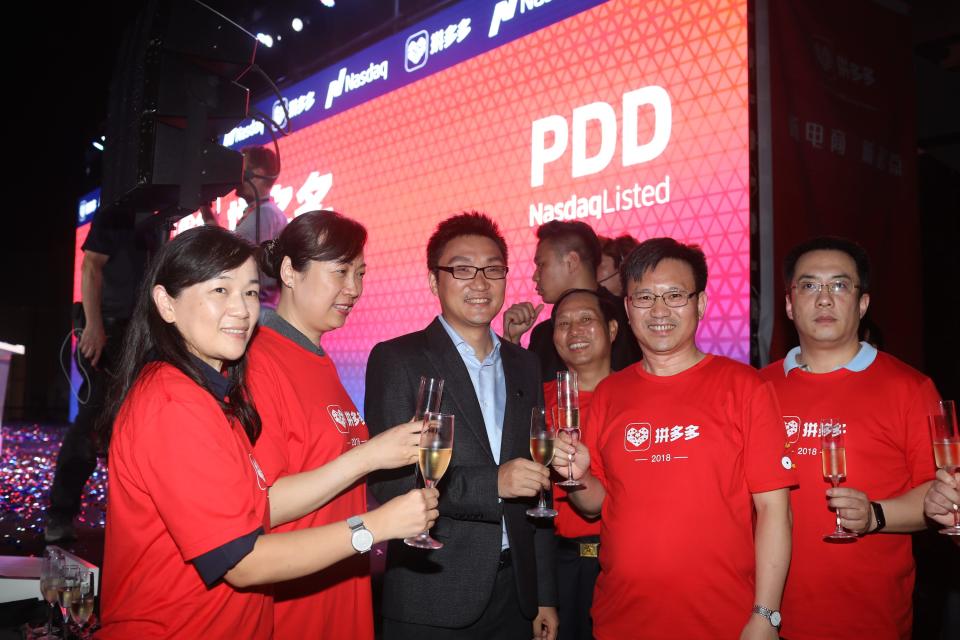
Although Huang feels "very lucky" about how he was educated and the opportunities he enjoyed, describing himself as a "phoenix soaring out of a chicken coop," he has one major regret.
"I was too goal-oriented and wasted too much time striving to be number one in class and a good student," Huang wrote on his Medium blog. He added that he wished he'd spent more time being rebellious, naughty, and "purely enjoying youth."
He interned at Microsoft, but wasn't tempted by a future there
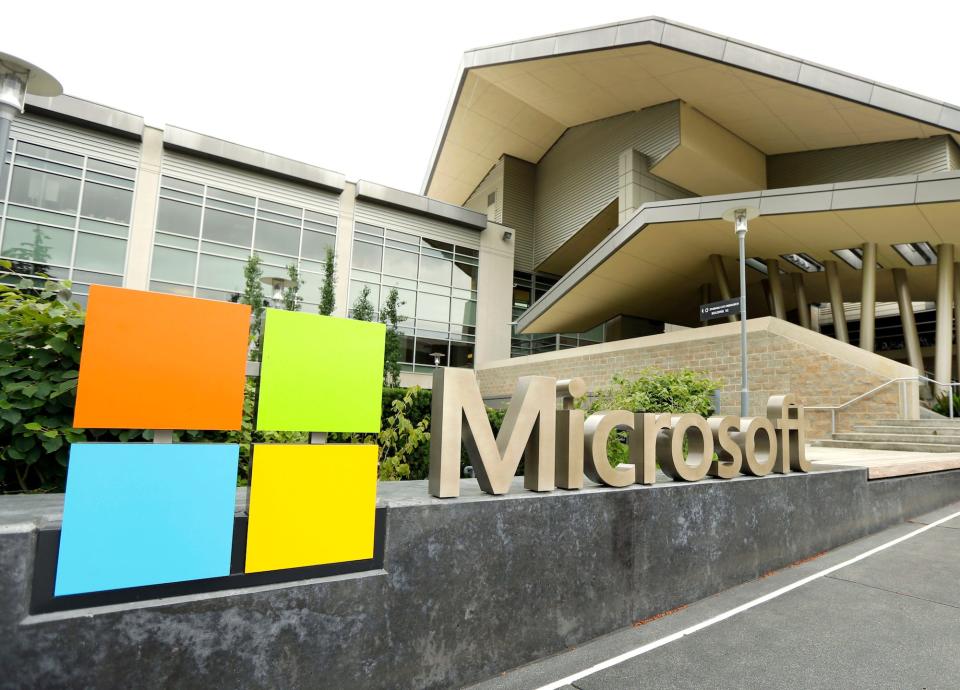
Huang received his first salary as a Microsoft intern and worked at Microsoft Beijing and the company's Redmond, Washington office, where he noted he was paid far more.
But he didn't choose to stay after graduation. Huang wrote in a blog post that a mentor told him to look at a company called Google.
Huang's first full-time job was at Google, which he described as a lucky break
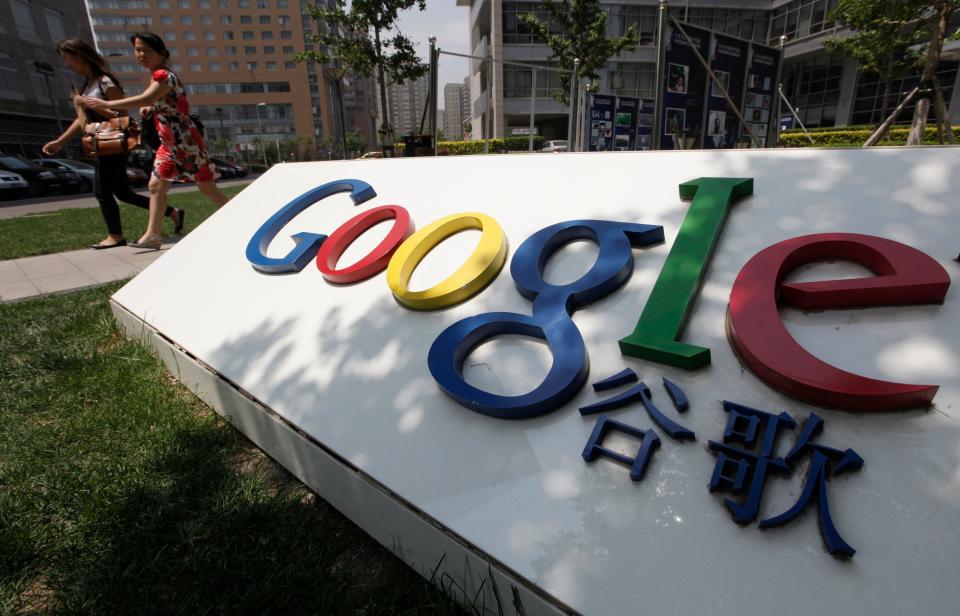
Huang graduated with a master's degree in computer science from the University of Wisconsin-Madison, in 2004, and landed his first full-time job at Google as a software engineer before becoming a product manager. At the time, Google was preparing to enter China, and Huang became part of the firm's landing team.
Google floated on August 19, 2004, raising over $1.9 billion. Huang had joined just six months earlier. He recalled this heady time in a blog post. "The operating profits and the number of [employees] grew rapidly," he wrote, while his bank balance "suddenly grew a lot too."
Huang compares Google's local influence to China's liberalizing 1980s reforms
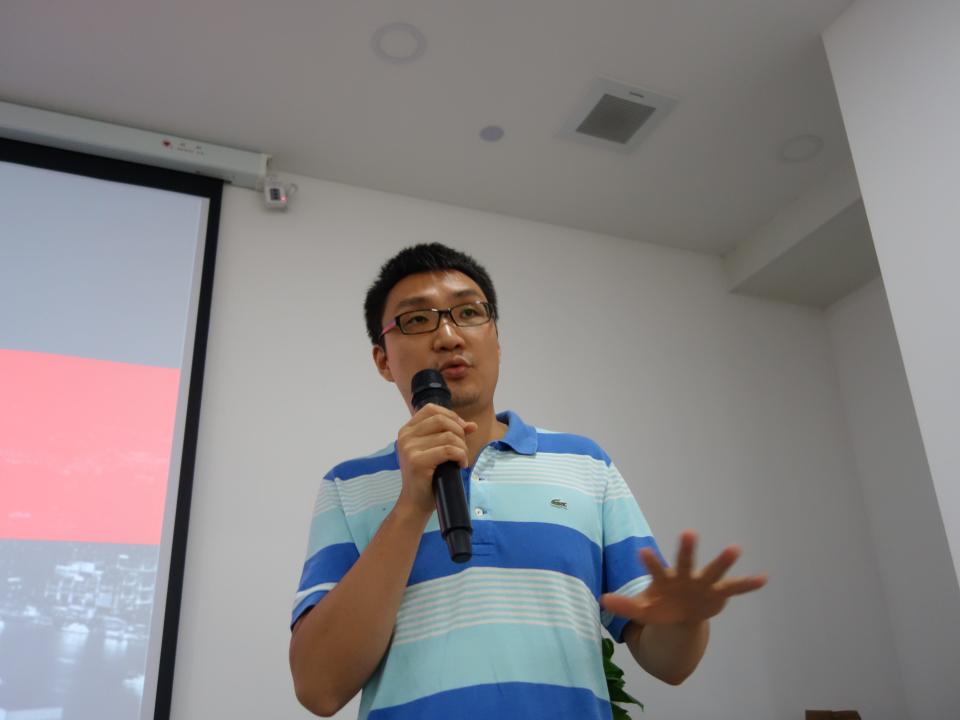
Huang relocated to China in 2006 to help set up Google China, Bloomberg reported.
At the company, Huang saw how challenging it was for foreign tech companies to compete with local Chinese businesses.
Huang noted that despite Google's big-brand name, it struggled to recruit China's top talent. "Contrary to what it seems, forming a team with strong fighting power is actually much more difficult for international companies than for local Chinese companies," he wrote in one post.
But he singled out Google's management for praise, comparing their impact to China's "reform and opening-up" era of economic liberalization in the 1980s. Google was "encouraging grassroots innovation, daring to try, highly concentrated in central power and enjoying the institutional advantage of focusing resources on a few big things," he wrote.
Huang said he learned a lot during his time at Google and didn't realize how lucky he was until after he left in 2007. "It was not until three or four years after I left Google, I started to realize how rare it was to come across and join a company like Google at the time," he wrote. "It was a once-in-a-lifetime opportunity (or at least once in ten or twenty years) and I was extremely lucky."
Huang gained "basic financial freedom" at Google — then went his own way
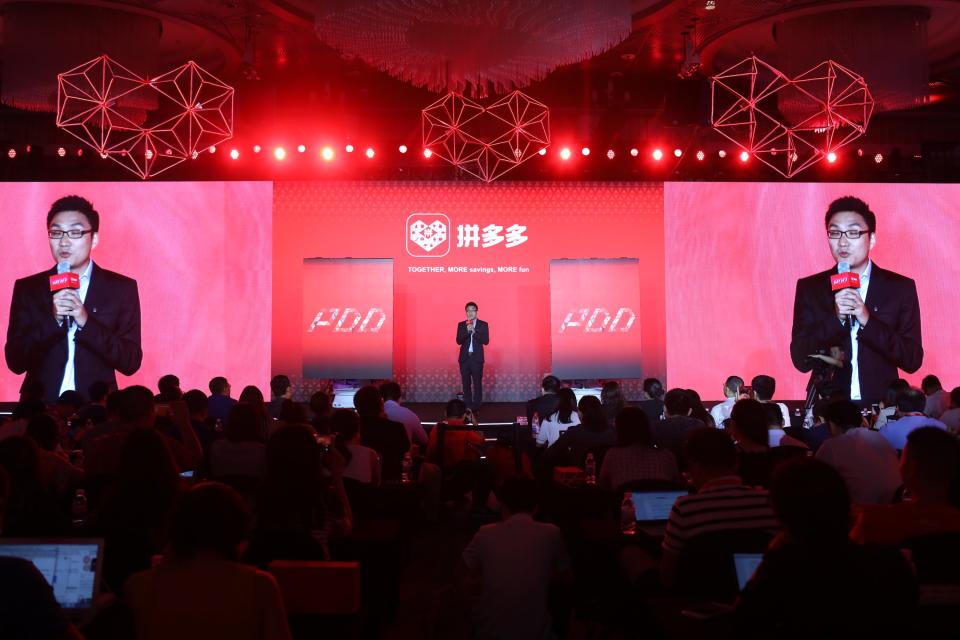
After resigning from Google in 2007, Huang started e-commerce site Oukou, which sold consumer electronics like mobile phones and home appliances. He sold the venture three years later in 2010, before starting his second company, Leqi, which helped foreign brands market their online stores on Chinese e-commerce platforms such as Tmall and JD.com.
His third venture was the gaming studio Xunmeng, which created web-based role-playing games.
Huang took an early retirement in 2013, aged just 33, due to an ear infection.
But the retirement didn't last long. Huang launched Pinduoduo in 2015 into an e-commerce space dominated by Alibaba and JD.com. But having gained experience in both e-commerce and games, the serial entrepreneur believed he could find success by gamifying online shopping. He raised $8 million from a group of investors led by Banyan in 2015, and a further roughly $100 million the next year, per Bloomberg.
Huang wanted Pinduoduo to be a mash-up of Costco and Disneyland
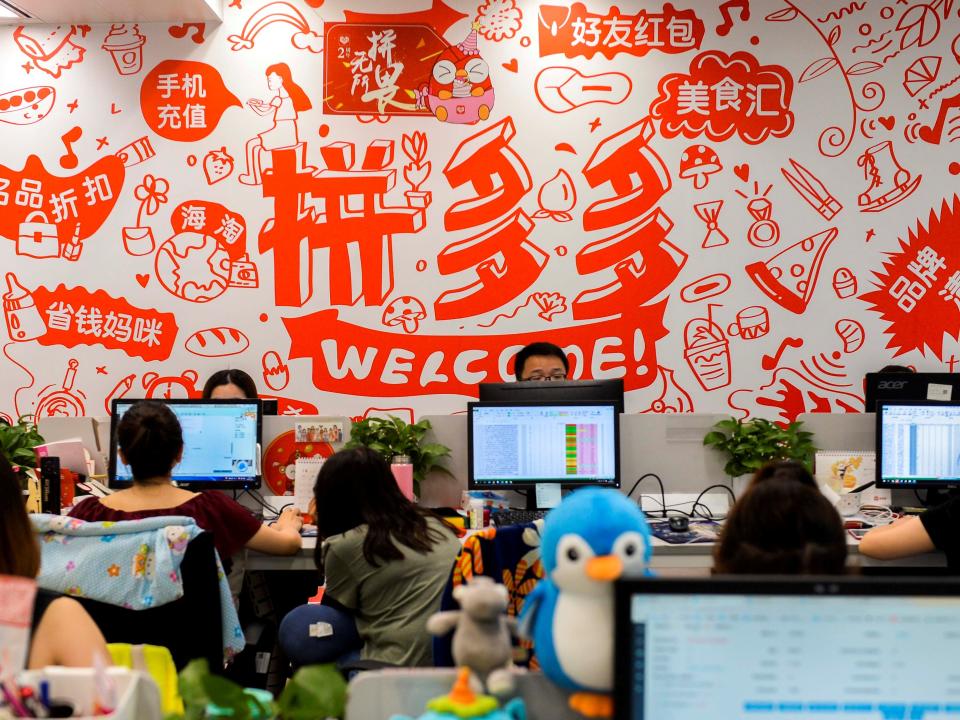
Drawing on his experience in games, Huang turned Pinduoduo into a "gamified" shopping app with fun features to encourage daily visits. As Huang wrote in the company's IPO prospectus, Pinduoduo is like a combination of Costco and Disneyland.
As well as subsidies on orders, Pinduoduo offers users cash rewards for playing a game that involves bringing others to the platform. His approach has drawn masses of buyers, and, in turn, sellers, who pay for advertising, which is key to the company's business model and generates more revenue than sales.
The billionaire has been influenced by Buddhism, and once travelled to Taiwan to visit a famous Buddhist pilgrimage site
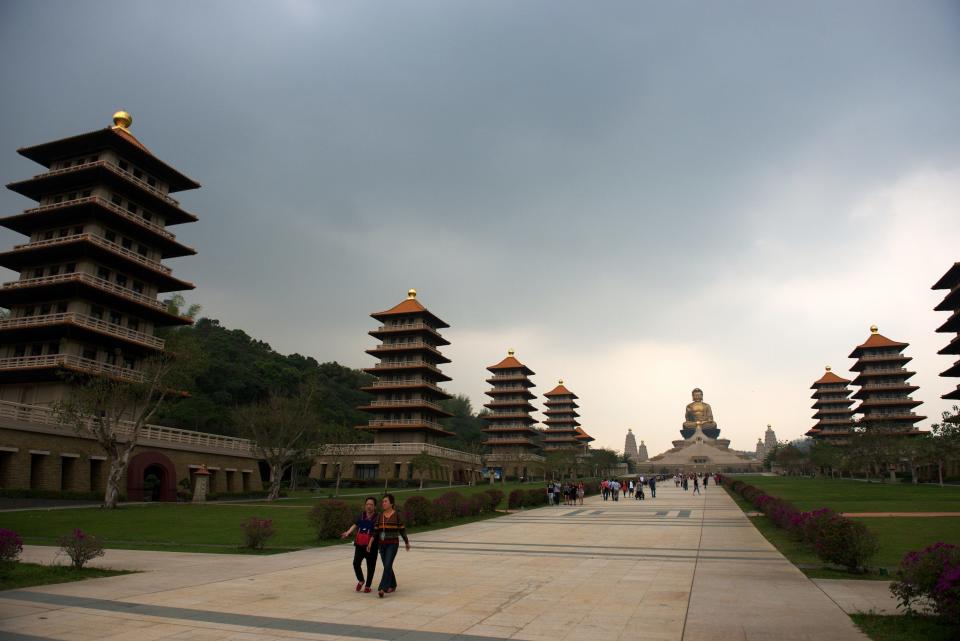
As a child, Huang would go with his grandfather to worship Buddha. When he was an adult, Huang visited the Fo Guang Shan monastery in Taiwan, a famous pilgrimage site for devotees of Master Hsing Yun, a Buddhist monk and founder of the Fo Guang Shan religious movement.
Huang says he is a non-Buddhist, but the religion has clearly left a mark. Referring to his Google days, he noted how money could change people overnight. "As Buddhism mentioned, how much money one can get is a corresponding virtuous reward. It's not necessarily a good thing to get a big fortune without enough virtue," he wrote on his blog.
He said some early Google staff had "too much money, lost incentives to work and started to look for fun and new careers." These people potentially wasted their most precious years, he wrote.
He didn't attend the Wall Street opening bell for his company's Nasdaq IPO
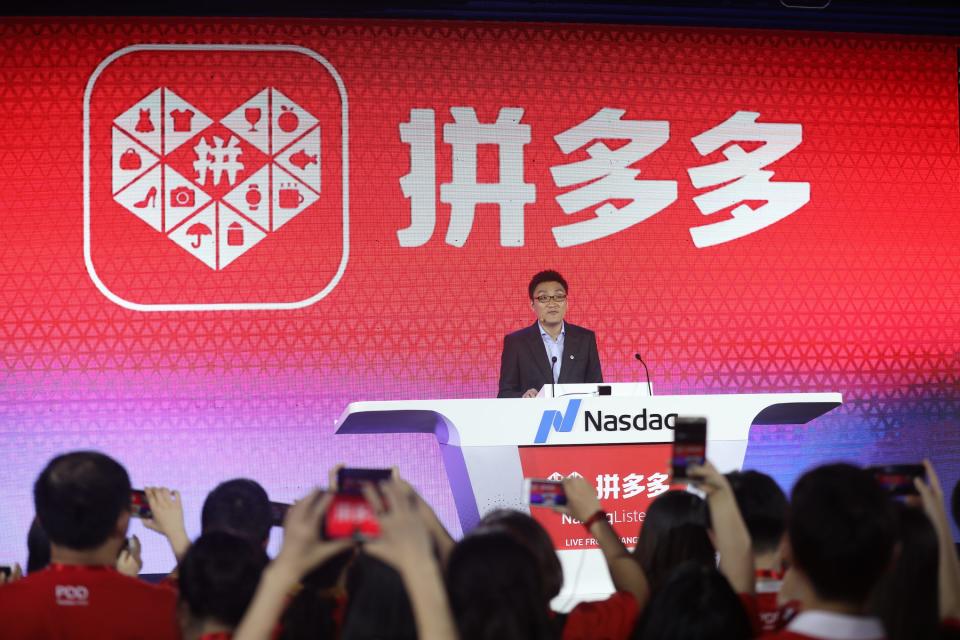
Many entrepreneurs fantasize about ringing the opening bell on Wall Street for their company's public trading debut, but Huang preferred to stay in China. Pinduoduo started trading on the Nasdaq on July 26, 2018, but the founder remained in Shanghai, for a simultaneous bell-ringing ceremony with investors and customers.
Speaking to Chinese media on the day, Huang said he wanted to let customers take part, "but it might have been a bit of a hassle to arrange visas for them all to travel to the US. Isn't it better that consumers, investors, all of us myself included, be here?" He tends to avoid long-haul travel to prevent his recurring ear infection from flaring up, he added.
Huang stepped down as CEO in July 2020

Huang stepped down as chief executive of PDD Holdings, Pinduoduo's parent company, on July 1, 2020.
Chen Lei, a founding employee who had been PDD's chief technology officer for about four years, took over as CEO and replaced Huang as chairman in March 2021.
Since April 2023, Lei has shared the role of CEO with Jiazhen Zhao, a founding member of Pinduoduo, who had been a senior vice-president since 2018 and worked across the company's grocery, agriculture, and supply chain operations.
Since leaving the company's leadership, Huang has focused on research in food and life sciences, per Bloomberg.
PDD's sales boomed after it launched shopping app Temu
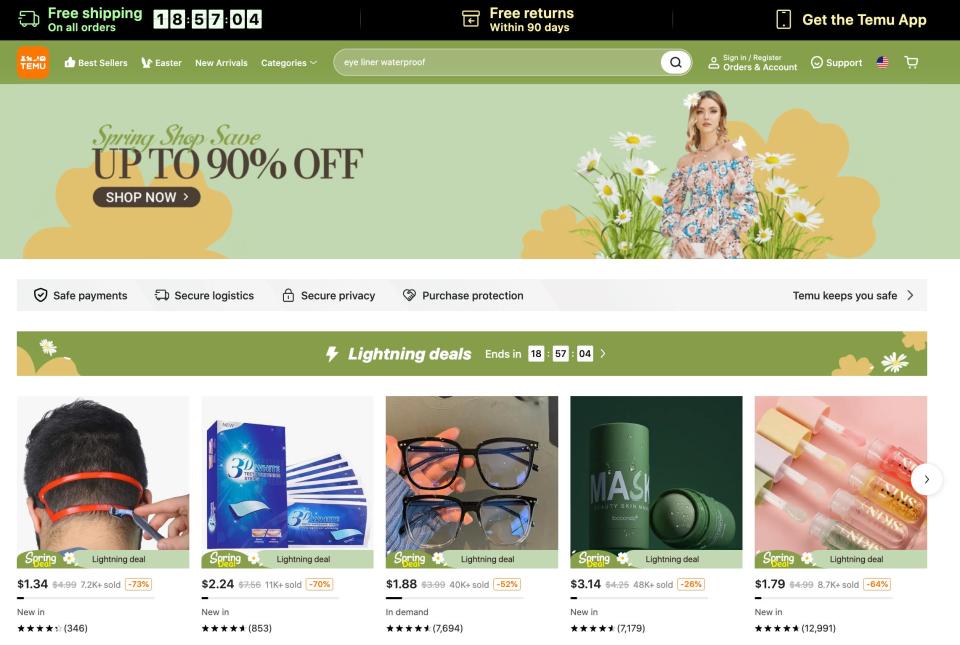
PDD Holdings launched Temu in the US in September 2022, but the cut-price shopping app didn't become widely known until it ran ads during the Super Bowl.
In just a few months, Temu stormed its way to the top of the download charts, becoming the top free app in both the Google Play Store and the Apple App Store.
Temu operates exclusively as a marketplace, where sellers — predominantly based in China — offer a vast array of items ranging from fast fashion and makeup to electronics and homeware on its website and app. It was launched to compete with the likes of Chinese bargain fast-fashion site Shein.
Temu sells its supercheap goods using the catchphrase "shop like a billionaire" and focuses its site and app on the discounts that customers can get. It also pushes shoppers to buy quickly by using phrases like "almost sold out" and "only 29 left."
Temu's international success has helped drive up PDD's sales and its overall valuation. The company reported $34.9 billion in revenues in 2023, a 90% increase on 2022. For comparison, Walmart posted $648.1 billion in revenues in the year to late January 2024 and Target posted $107.4 billion in the year to early February.
Huang was briefly China's richest person

Huang became China's richest person in early August, with an estimated fortune of $48.6 billion, per the Bloomberg Billionaires Index.
But his wealth hasn't been stable — it's a far cry from its peak of more than $70 billion in early 2021. It plummeted the following year.
Just 18 days after becoming China's richest person, Huang's fortune tumbled $14.1 billion after Pinduoduo reported earnings and guidance that disappointed analysts, Bloomberg reported.
The richest person title now belongs to bottled-water billionaire Zhong Shanshan, who had previously been China's richest person since April 2021, per Bloomberg.
Read the original article on Business Insider

 Yahoo Autos
Yahoo Autos 